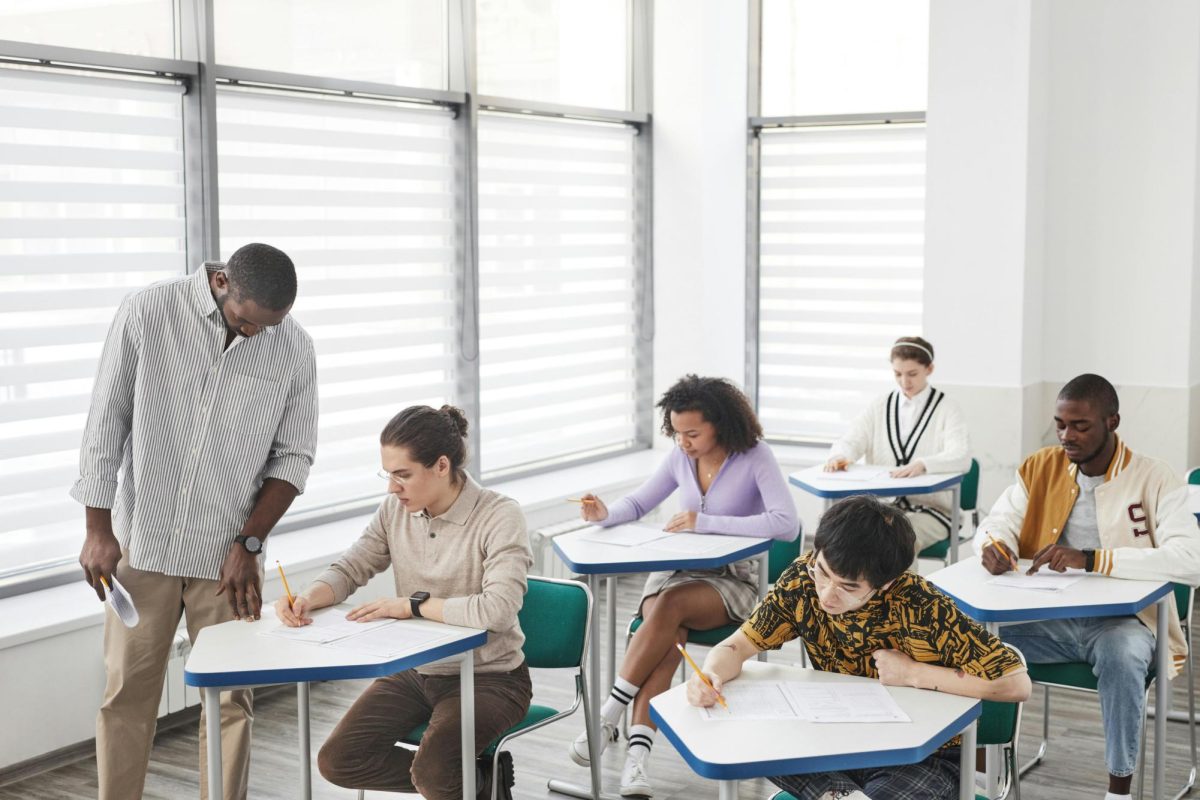On January 10, Senator Charles Sydnor III of the Executive Nominations Committee proposed Senate Bill 292, a measure aimed to stop unnecessary and racially targeted traffic stops, redirecting attention toward more critical matters like removing drunk drivers from the roads.
To support their bill, Ian Miller, Legislative Aide for senator Sydnor, presented the findings of a 2024 study by Zero Deaths Maryland, which revealed that nearly 30% of fatal crashes in the state in 2021 involved alcohol and/or drugs. This high percentage underscores the urgent need for more effective measures to combat impaired driving and prioritize safety on the roads.
By shifting the focus of traffic stops from small issues, such as excessive noise and window tint, to speeding and DUIs, law enforcement can work to prevent serious crime and death on Maryland roads.
The proposed bill would promote this change by limiting police officers’ ability to conduct traffic stops for 15 primary offenses. These offenses would become secondary actions, meaning officers could not use those offenses as the primary reason for a traffic stop. Examples of some current primary offenses that would see a change are failing to give a proper signal, driving with an unregistered license plate, and spinning wheels or noise making.
Supporters of this bill believe that if police officers forgo pulling people over for smaller traffic violations, they will have more time to focus on bigger issues.
Miller said, “We would rather have our officers focused on [stopping people for] speeding, driving under the influence, running redlights and stop signs, and reckless driving-driving infractions that threaten lives.”
While not all of the current primary traffic offenses are as severe as speeding or drunk driving, they still come with risks, especially for young drivers who are not as comfortable on the road.
Daveon Black and Bradly Matthews, juniors at Linganore High School, said they would “not feel safe” driving on the road with someone who could not properly give turn signals. Black noted that drivers who could not follow well-known traffic rules are “unpredictable” and “more likely to cause an accident.”
While the bill is meant to maximize police department’s abilities to keep people safe and restrict racism, many Maryland citizens as well as local police officers are skeptical of the benefits the bill will bring. Some believe it will lead to lawlessness, crime and a decrease in public safety.
During the two hours of heated debate at Sydnors testimony to the Judicial Proceedings Committee, officers at the hearing shared concerns about the vague language used in the bill and how the proposed information could be misconstrued or turn Maryland citizens into reckless drivers.
According to WBAL-TV, some officers are confused by the proposed reforms to traffic law. Harford County Sheriff Jeffery Gahler, one of the officers who said the law left him scratching his head, went on to post a parody video on Facebook, showing several scenarios where this bill may negatively affect an officer. It could result in officers facing more lawsuits or legal challenges. This is likely to create a chilling effect where officers are less willing to engage in proactive policing, fearing the risk of personal legal and financial repercussions. Gahler said, “I scratch my head and say, ‘What are they thinking?'”
Senator Sydnor worked together with the Legislative Black Caucus of Maryland, a legislative body that acts on behalf of African-American citizens to promote black progression, to bring light to suspected ongoing racial profiling.
According to Baltimore County Police Department data on traffic stops, African-American drivers are 73% more likely to be pulled over than white drivers. In 2018, African-American drivers accounted for 56.25% of traffic stops, while only making up 26.1% of Baltimore county’s population. These statistics raise concerns about whether the stops are based on reasonable suspicion or if officers are influenced by racial biases.
As a person of color, Linganore High School assistant principal Marcus Allen spoke about a personal experience where he felt threatened and racially targeted by the police.
“I was going the speed limit, but a sheriff’s deputy stopped me and pulled me over and harassed me,” Allen said. The deputy only stopped his vulgar behavior when someone else intervened.
However, this racial profiling is not limited to just African-American citizens. In the 2023 Traffic Stop Deep Dive Report made by the Baltimore County Police Department, Chief Robert O. McCullough stated, “Hispanic drivers are issued citations at a higher rate than both Black and White drivers.”
The concern of racial profiling is real, close to half (41%) of the people of color living in America can testify to being racially profiled at least once in their lifetime. While actions have been taken to combat this disparity, this bill would be a significant attempt.
This system has been proven to work in other areas, like Fayetteville, North Carolina, which established a policy to eliminate non-safety related stops in 2013. After they took action, their community noticed decreased racial disparities in traffic enforcement and fewer car crashes in their area. This information was used by Senator Sydnor to support the idea of implementing similar legislation in the state of Maryland.













